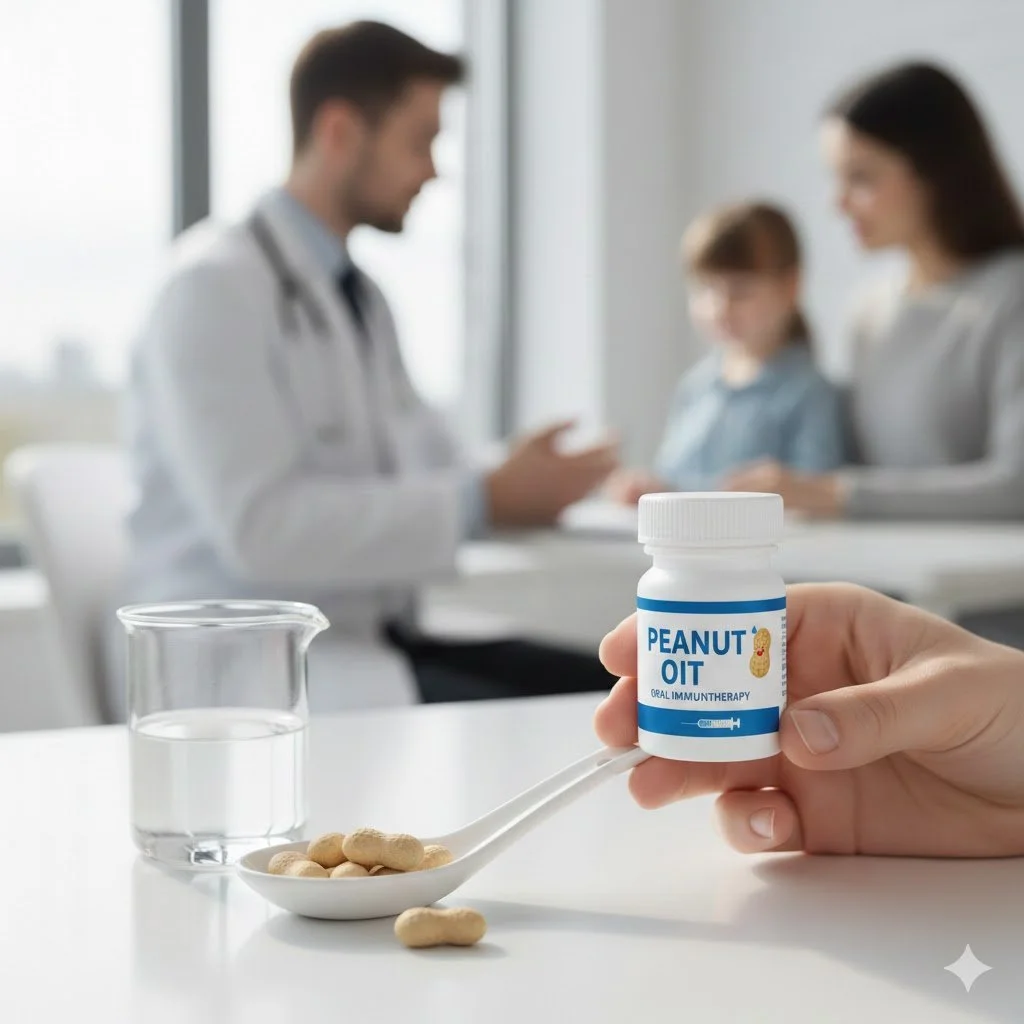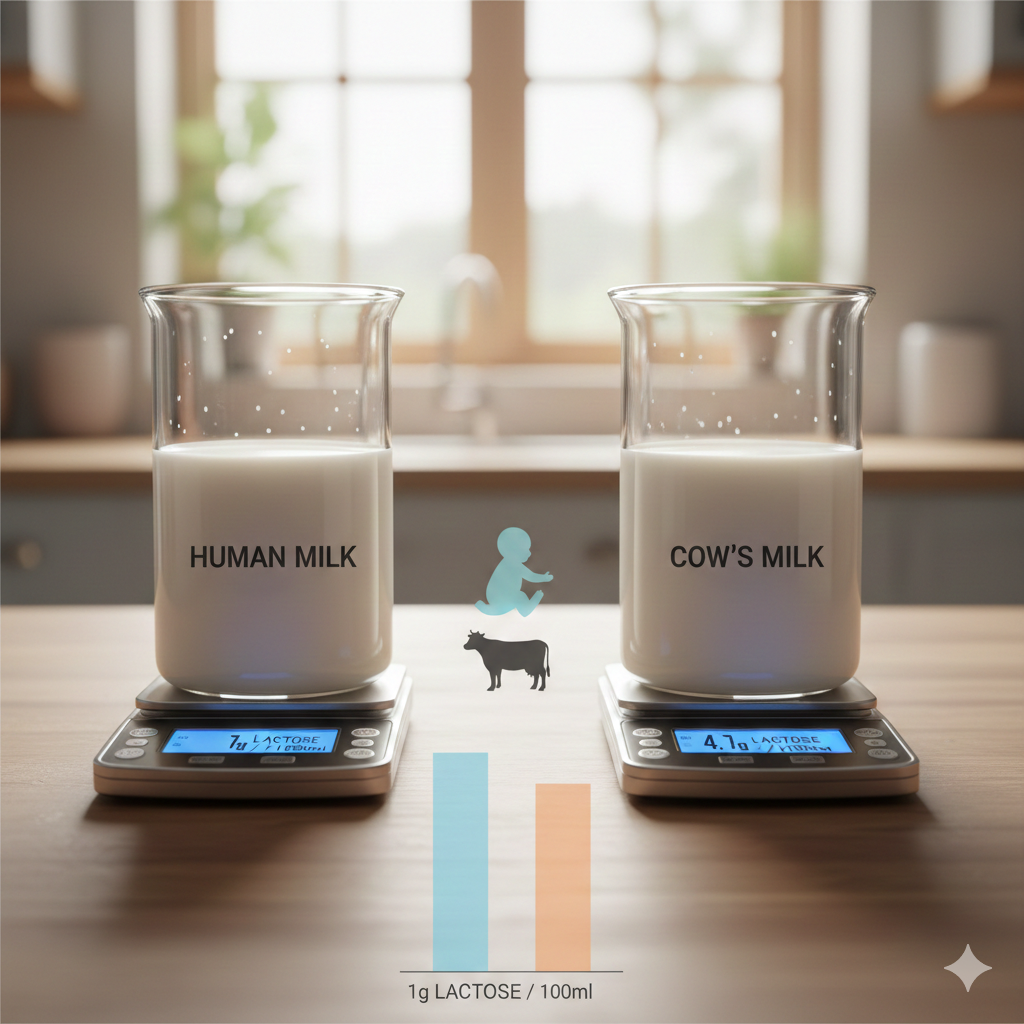What to Do If my Baby Has Allergic Reaction to Food: A Comprehensive Action Plan
Witnessing your baby experiencing an allergic reaction to food can be frightening and overwhelming. However, understanding exactly what steps to take during this critical moment can help you respond quickly, effectively, and confidently, ensuring your baby's safety and health.
Around 5-8% of children experience food allergies. Thankfully, in younger children, most reactions will be of a mild to moderate nature; however, severe reactions, such as anaphylaxis, are possible. Older children are more prone to severe reactions at lower doses than younger children.
In this Blog, you'll learn to identify common allergy symptoms, take immediate steps for managing reactions, recognise severe reactions, know when to seek emergency help, follow effective aftercare, and develop long-term strategies to prevent future episodes.
Empowering yourself with this knowledge can significantly reduce stress and help maintain your baby’s well-being.
Recognising Food Allergy Symptoms in Babies
Identifying symptoms quickly is essential in managing food allergies. These symptoms vary from mild to severe:
Mild Symptoms:
Redness around the mouth or eyes
Mild swelling of the lips or face
A few small raised bumps (hives/urticaria) or itchy rash
Slight discomfort or fussiness
Aversion/dislike of the food just eaten
Moderate Symptoms:
Mild symptoms (as above) and/or:
Vomiting or diarrhoea shortly after eating
Persistent coughing or wheezing
Altered behaviour, e.g. noticeable irritability or prolonged restlessness
Nasal symptoms include congestion or a runny nose, often accompanied by profuse nasal discharge and repeated sneezing.
More hives
Severe Symptoms (Anaphylaxis):
A combination of the above symptoms and/or:
Generalised pink/red colour
Multiple hives all over body and intense scratching.
Difficulty breathing, noisy or wheezing breath, altered voice, wheezy cough or wheezing
Severe swelling, especially of the face, lips, digits or tongue
Weakness, limpness, lethargy, or unusual, sudden-onset sleepiness
Intense abdominal pain
Pale or bluish skin colour
Loss of consciousness, floppy or suddenly sleepy.
If severe symptoms arise, immediately treat them as an emergency and seek medical assistance without delay.
Immediate Actions: Detailed Step-by-Step Guide
Acting quickly and clearly is crucial when a baby shows signs of an allergic reaction. Follow these immediate, practical steps:
Stay Calm & Remove child from the Allergen.
Immediately discontinue feeding the suspected allergenic food.
Gently and carefully clean your baby's face and mouth with a soapy, damp cloth or a wet wipe to remove any traces of the allergen.
Administer Prescribed Medication Promptly:
Give your baby an antihistamine if previously prescribed by your Doctor for mild reactions, strictly following dosage instructions.
If your baby vomits an oral dose of antihistamines, repeat the dose.
In cases of severe reactions, immediately administer an epinephrine auto-injector (such as an EpiPen or Neffy nasal adrenaline device when available), this is the drug of choice and will improve most allergy symptoms.
Monitor Your Baby’s Condition Closely:
After calling for help, watch your baby’s breathing, skin, behaviour, and responsiveness carefully to detect any worsening symptoms promptly.
Call Emergency Services Immediately if Symptoms Intensify:
If your baby’s symptoms escalate or you notice breathing difficulty, call emergency services (999 in the UK or 911 in the USA) without hesitation.
When to Seek Emergency Help
Anaphylaxis is a severe and potentially life-threatening allergic reaction that requires immediate medical intervention. According to the NHS, if your baby exhibits severe symptoms such as difficulty breathing, severe swelling, or faintness, emergency services must be called immediately. Rapid response can save lives, and every second counts.
Aftercare: Essential Steps After an Allergic Reaction
Once your baby is stabilised and safe after an allergic episode, consider these important follow-up actions:
Schedule an appointment with an allergist or paediatrician to accurately identify and confirm the allergen. Our team can be found at London Food Allergy Testing.
Create a detailed allergy management plan in collaboration with healthcare providers, explicitly tailored to your baby’s needs.
Educate all caregivers, babysitters, family members, and anyone regularly involved in your baby's care about recognising allergy symptoms and responding effectively.
Always keep prescribed medications accessible and inform caregivers of their location.
Preventing Future Allergic Reactions
Proactive measures can significantly lower the risk of future allergic episodes:
Introduce potential allergenic foods carefully and gradually, one at a time, monitoring closely for reactions.
Maintain a detailed food diary to help identify triggers quickly.
Regularly consult and update your approach with pediatric allergy specialists, such as those at London Allergy Consultants, ensuring your allergy treatment strategies remain effective and current.
Stay informed about the latest developments and recommendations in allergy prevention and treatment.
Conclusion
Quick, correct responses are essential when your baby experiences an allergic reaction to food. Recognizing symptoms, having a clearly defined action plan, seeking immediate medical help, and following preventive strategies will significantly improve outcomes. By educating yourself thoroughly and collaborating with healthcare professionals, you can confidently manage allergic reactions and ensure your baby’s safety and comfort. For further assistance or inquiries, contact us directly.
Frequently Asked Questions:
-
Common allergenic foods for babies include milk, eggs, sesame, peanuts, tree nuts, wheat, soy, fish, legumes and shellfish.
-
Many babies outgrow allergies to milk, eggs, wheat, and soy by the time they enter school i.e. at around 6 years of age. However, allergies to these foods may persist in some patients, and in most patients, allergies to peanuts, tree nuts, fish, and shellfish typically persist into adulthood.
-
Allergic reactions usually appear rapidly, within minutes, and usually within the first hour. After initial symptoms, eczema may flare over hours.
-
No, current guidelines recommend early introduction of allergenic foods around 4-6 months of age. Studies such as the LEAP and EAT Studies, which Dr’s Du Toit and Dr Foong were involved with, have led to these dietary changes. Feel free to consult with them to get the very latest advice in this regard. There is a Blog on this topic on this website.
-
Allergists typically use clinical history (if previously exposed to the allergen) skin prick tests, blood tests, elimination diets, and supervised food challenges to accurately diagnose food allergies.
Worried About Allergies? Let’s Help You Get Answers
If your child is showing signs of a food, pollen, or skin allergy, early diagnosis is key. At London Allergy Consultants, our expert team provides trusted, evidence-based care tailored to your child’s needs. From testing to treatment plans, we guide you every step of the way. We are happy to assess babies (infants), toddlers, young children, adolescents and young adults with allergies.
Dr. George du Toit
London Allergy Consultants
London Allergy Consultants is a leading UK centre for diagnosing and treating food and airborne allergies in children and young people.








Benefits of pollen immunotherapy include modifying the disease process, leading to long-term tolerance; preventing allergic rhinitis from progressing to asthma; reducing new sensitisations to allergens; maintaining clinical efficacy after treatment discontinuation; and improving control of allergic symptoms while decreasing medication use.